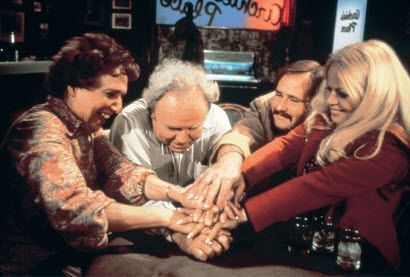
Any good fiction is rooted, at least to a degree, in reality. Whether you’re writing something completely autobiographical, or something so outlandish it barely makes sense, you will always release a bit of yourself into the work that you’re producing. By using your work to hold a mirror up to yourself, you allow other people who have had similar experiences to see themselves in your work.

When Jean Stapleton auditioned for All In the Family, she knew that creator Norman Lear had something special because she was able to see her own experiences in his work. In an interview with the Star-Phoenix, Stapleton recalled being slightly surprised by the contents of the series but recognizing some familiarity within the work.
She actually recalled, “I was reminded of my own parents.” and said that she was “terribly amused by it, by its reality and honesty and humor and by the fact that the subject would be treated on TV.”

Stapleton also appreciated the depth that Lear gave to a character like Edith Bunker, even if audiences didn’t quite recognize it at first. The actor said, ‘Edith is not well-educated, not bright, but intuitively right so many times. I like seeing this because it gives respect for that kind of person.”
She reasoned, “We don’t dismiss somebody because they’re dumb or ignorant. They may have other qualities that have nothing to do with intellect: honesty, integrity, instinct. And she has burst Archie’s hot air more than once in coming through with the truth and in doing so in a marvelously comic way.”

Real fans of All in the Family who took the time to watch Edith’s growth as a character understand that she is not simply a two-dimensional echo chamber for Archie to yell at. She has her own reservations and strengths and can be incredibly street-wise at times when her husband simply isn’t. Like a real person, she contained multitudes, and viewers delighted in every episode that explored a new shade of Edith.
